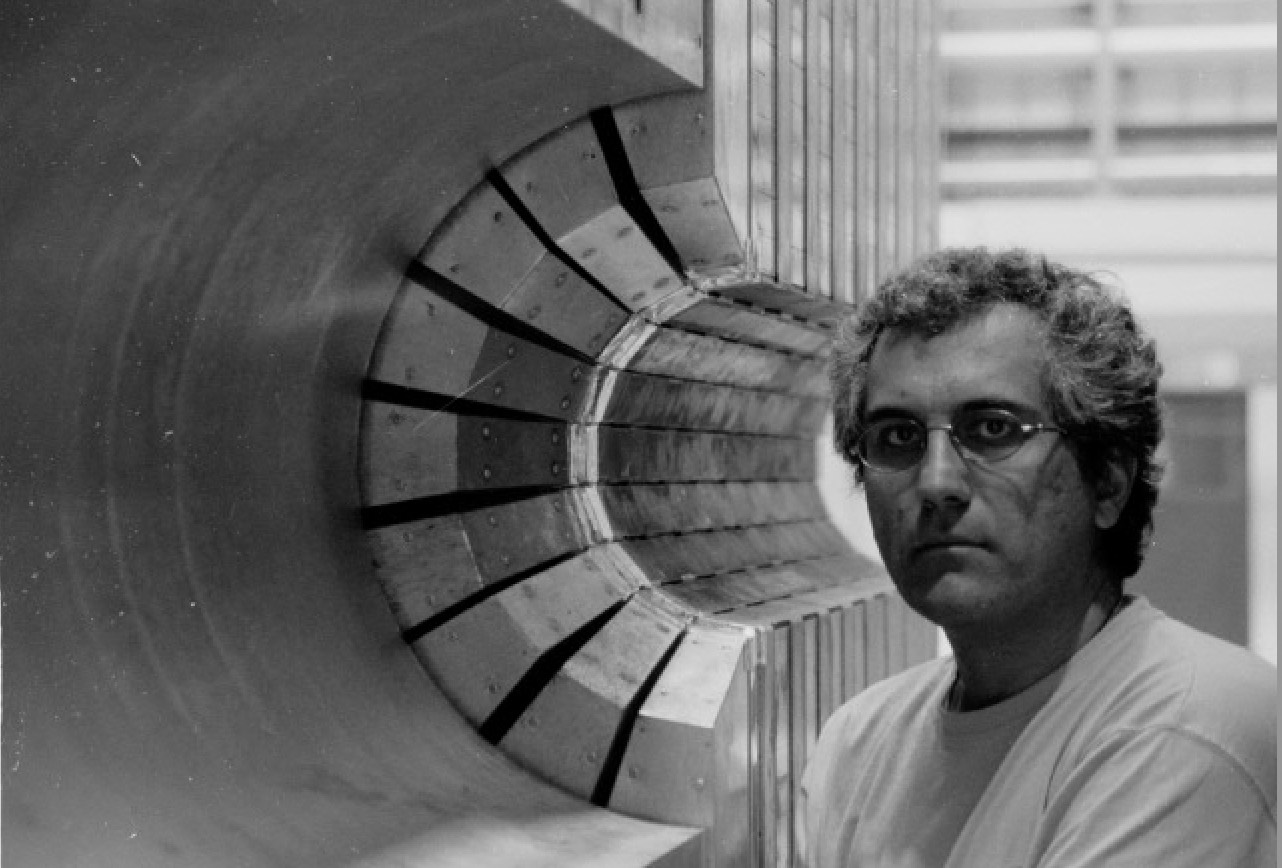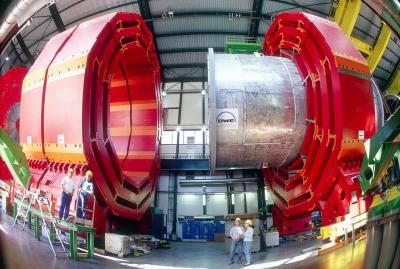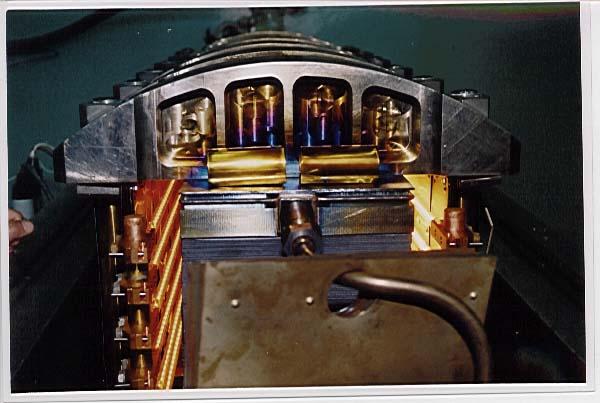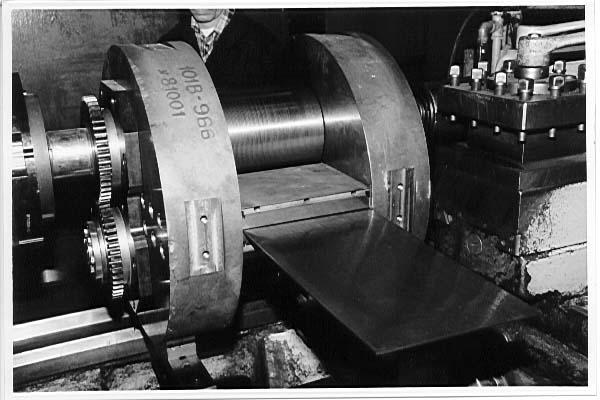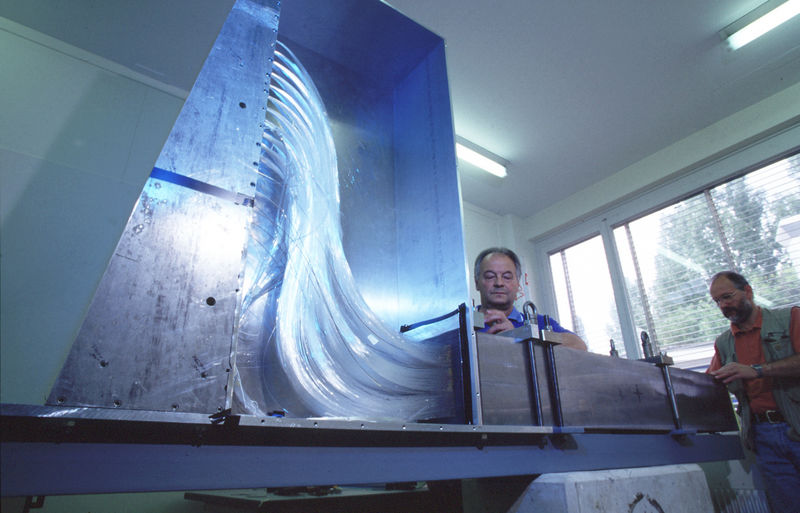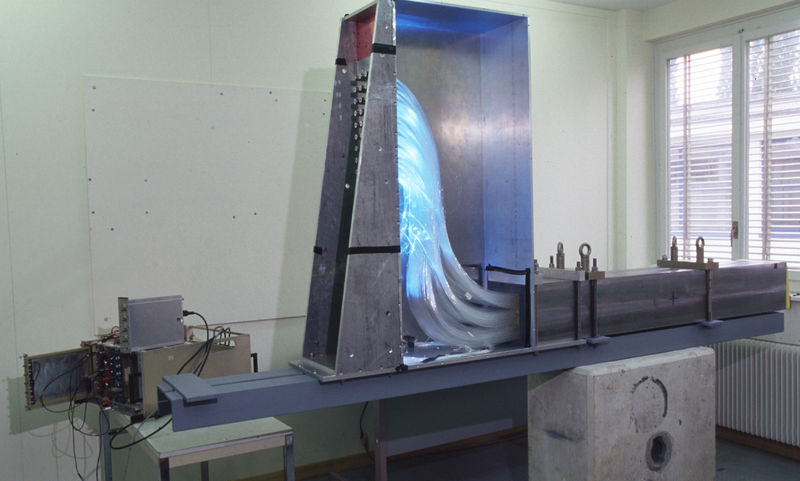CMS Forward Calorimeter (HF)
The forward calorimeters (abbreviated as HF) in the Compact Muon Solenoid (CMS) experiment at the LHC cover a large pseudorapidity range, from 3 to 5, and thus significantly improve jet detection and the missing transverse energy resolution which are essential in top quark production studies, standard model Higgs, and all SUSY particle searches. Higgs boson production through weak boson fusion channel requires identification of high energy quark jets by the forward calorimeters. This channel is largely characterized by two energetic forward tagging jets (~1 TeV) with a typical transverse momentum of half of a W mass. CMS forward calorimeters are designed to identify high energy jets with good precision (20 to 30% at 1 TeV) during its useful lifetime.
TTU has played mission-critical roles in HF's R&D, design, construction, installation, commissioning, and its operations. This calorimeter was a first (radiation-hard fused-silica fibers embedded in steel) in collider experiments. It performs magnificently since the start of the LHC operations. Nural Akchurin was one of the leaders of the CMS forward calorimetry system and served as Technical Coordinator for many years.
Advanced Particle Detector Laboratory
-
Address
TTU Advanced Particle Detector Lab, 1204 S Gilbert Dr, Building 557 Lubbock, TX 79416-2104 -
Phone
806.790.7444 -
Email
sonaina.undleeb@ttu.edu

